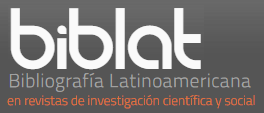User embracement as a strategy to achieve integral assistance in hospitals of average complexity
DOI:
https://doi.org/10.5433/1679-0367.2013v34n1p91Keywords:
User Embracement, Humanization of Assistance, Emergency Service, Hospital.Abstract
Access and embracement are essential assistance elements in order to act effectively on an individual’s health condition. Admission means a change in the work process organization and a new guideline for the institution, including a different attitude of the heath professional towards the user. The objective of this study was to describe on an experience carried out in an emergency service of an average complexity public hospital, to identify how an embracement with risk classification has contributed to the integrality of the assistance as one of the principles of the Single Health System. Data were collected through observation of the strategies used during the admission of users. Data analysis was carried out through reports on the reality experienced in the Emergency Room of the institution where the study was done, after the implementation of embracement with evaluation and classification of risk, according to the authors’ perceptions. The implementation of this admission strategy represented an advance for the institution which recognized health as a right, reduced users’ waiting time (long lines) and improved the service and satisfaction of users and employees, turning the assistance into something ethical, humanized and solution-based for service users.
Downloads
Downloads
Published
How to Cite
Issue
Section
License
Copyright (c) 2013 Semina: Ciências Biológicas e da Saúde

This work is licensed under a Creative Commons Attribution-NonCommercial 4.0 International License.
adopts the CC-BY-NC license for its publications, the copyright being held by the author, in cases of republication we recommend that authors indicate first publication in this journal.
This license allows you to copy and redistribute the material in any medium or format, remix, transform and develop the material, as long as it is not for commercial purposes. And due credit must be given to the creator.
The opinions expressed by the authors of the articles are their sole responsibility.
The magazine reserves the right to make normative, orthographic and grammatical changes to the originals in order to maintain the cultured standard of the language and the credibility of the vehicle. However, it will respect the writing style of the authors. Changes, corrections or suggestions of a conceptual nature will be sent to the authors when necessary.
This Journal is licensed with a license Creative Commons Assignment-NonCommercial 4.0 International.

















